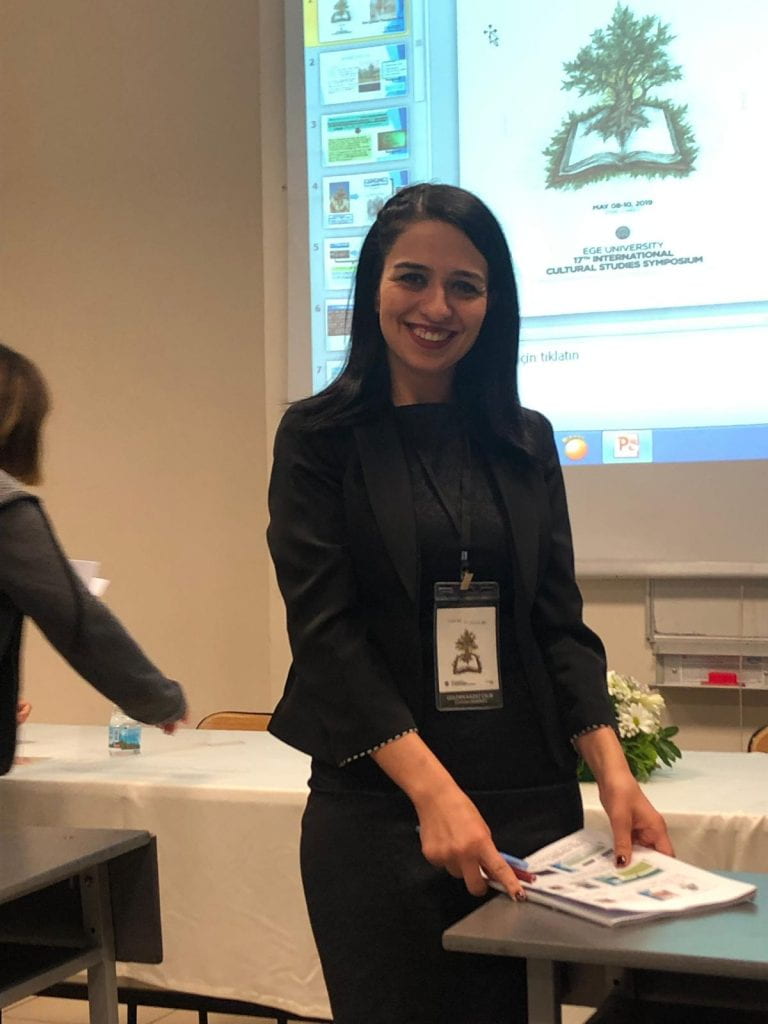Reflection on “Ege University 17th International Cultural Studies Symposium” by Gülden Kazaz Çelik

Brief information about the conference:
Ege University 17th International Cultural Studies Symposium (CSS) was held in May 8-10 as a three-day event welcoming 60 national and international speakers coming to talk about the long-lasting relationship between nature and culture, the theme of the symposium. It was co-organised by the Departments of American Culture and Literature and English Language and Literature of Ege University and accompanied by so many young scholars concerned with human-nature relationship and its reflection upon the literary works as well as other disciplinary pieces. There were three keynote speakers who are well-known all around the world in the field of ecocriticism and literature and nature: Professors Cian Duffy from Lund University, Serpil Oppermann from Nevşehir University and Ufuk Özdağ from Hacettepe University. Each of the presentation was so inspiring that they led us to reconsider, reevaluate and reconfigure our (mis)concenptions of the dichotomy of nature/ culture, serving as an emergent call to raise an awareness towards the restoration of nature by humans, the ones damaging and thereby distorting it the most.
Brief information about my/our presentation:
Presentation Title: Don Quixote: Thoreauvian Man
My presentation aimed to offer a new reading and interpretation of Cervantes’ Don Quixote in accordance with Thoreau’s transcendental philosophy. It suggested reading Don Quixote’s adventures through the deepest of the nature as a self-quest of an individual to obtain a new existence to himself. Throughout my presentation, I tried to juxtapose Thoreau’s way of living with Don Quixote’s and came up with the idea that Don Quixote is one way or another trained by Nature to attain such a valuable but simple self. Turning into a man who does not care what to eat, where to sleep, how to clothe and get warm, Don Quixote eventually becomes a Thoreauvian man.
Highlights from Conference:
- Among so many thought-provoking presentations, I really found Professor Ufuk Özdağ’s speech so meaningful and inspiring since up to that moment I had never considered “nature writing” as a genre neither had I had a perspective formed by ecocriticism. Besides, I now feel that whatever she suggested and tried to do at her speech is so realistic and doable for us in order to spread a more common understanding of the significance of “environmental values”. Additionally, I quite enjoyed Dr. Züleyha Çetiner Öktem’s presentation entitled “Where Flesh Meets Machine: Making Sense of Cyborg Anthropology” due to its originality. In contrast to our common belief in nature over nurture, Dr. Öktem suggested that nature and culture are intertwined; that is, they coexist, contributing to each other’s existence and this coexistence results in Cyborg beings.
I am so happy and glad to have such a chance to catch up with the recent trends in literary and cultural studies.

Leave a Reply